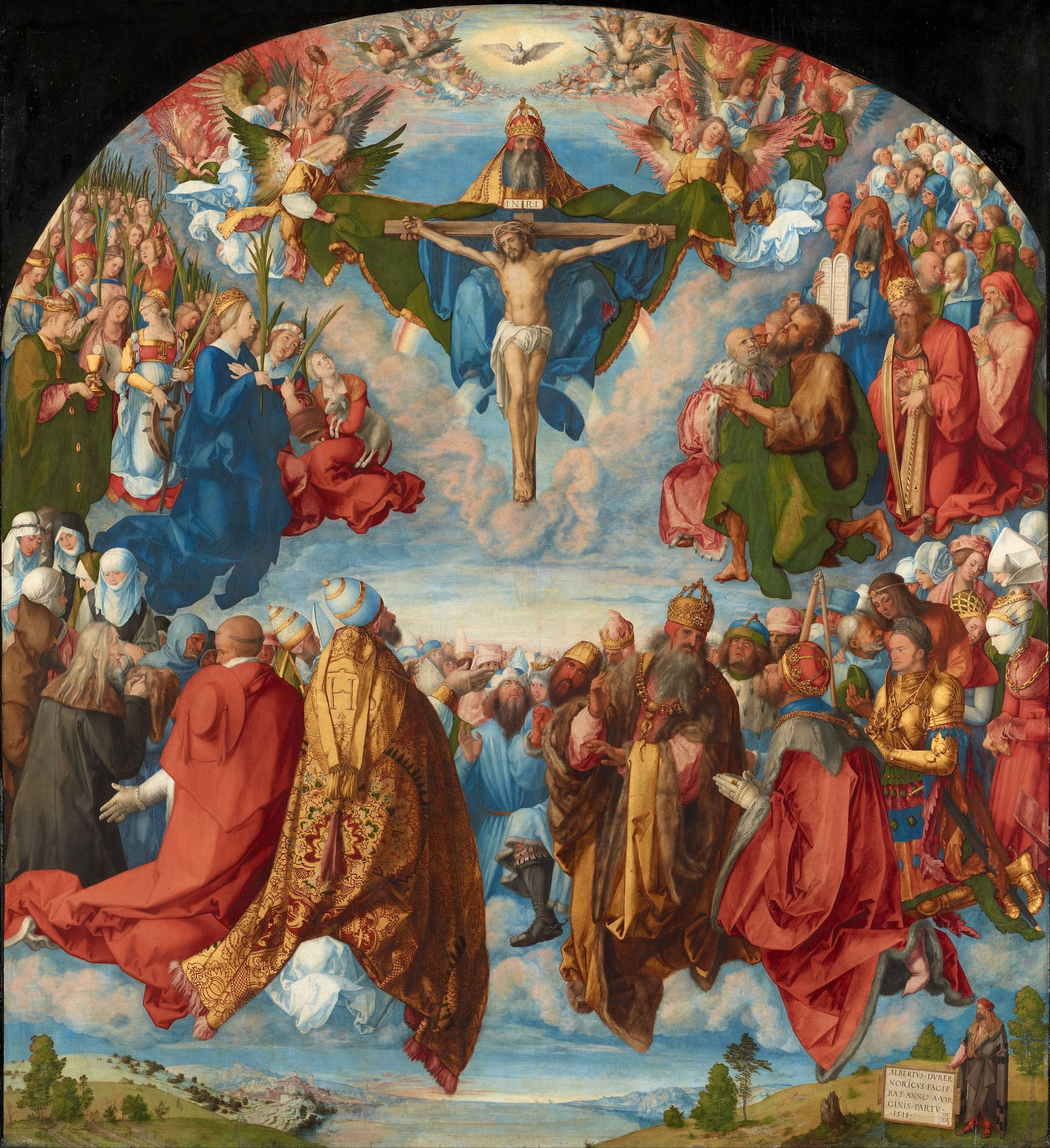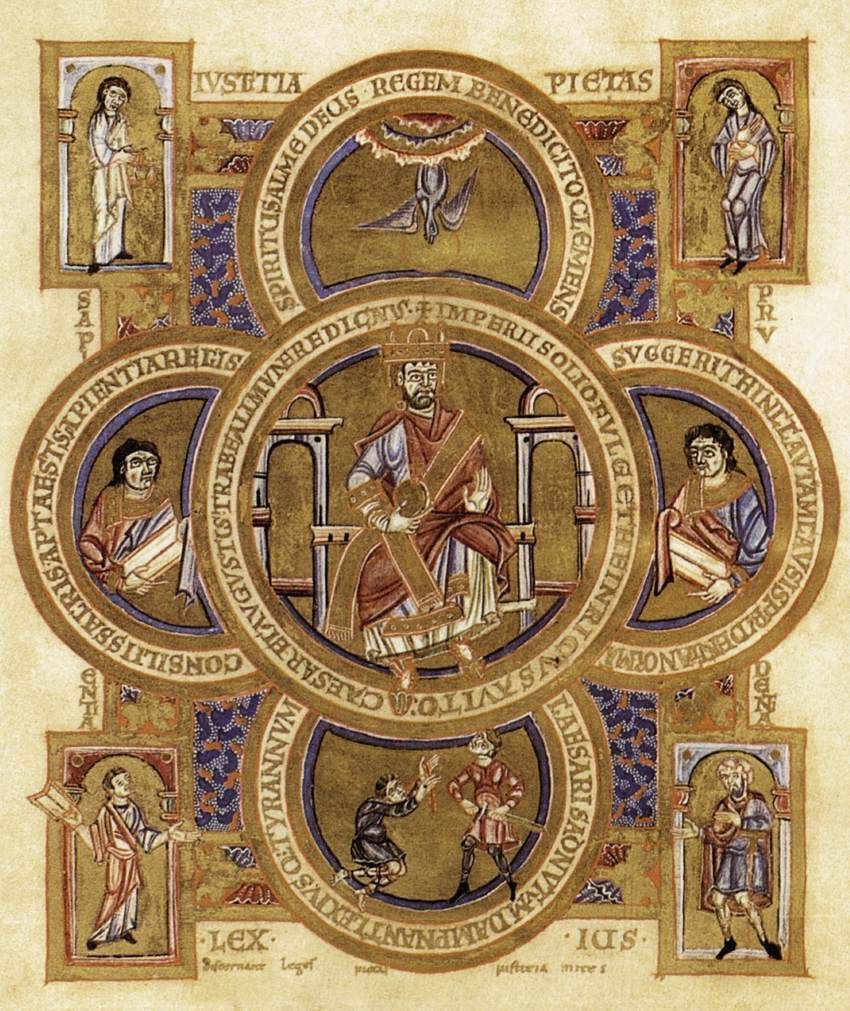Message of Abbot Paul - All Saints - 1st November 2023
Abbot Paul • October 31, 2023


“I saw a huge number, impossible to count, of people from every nation, race, tribe and language; they were standing in front of the throne of the Lamb, dressed in white robes and with palms in their hands.” This vision of heaven lies at the heart of the Feast of All Saints, which began life as a celebration of the martyrs, many of whom were unknown by name. The only way to be sure was to have a feast in honour of them all. St Ephrem the Syrian, in the middle of the 4th Century, mentions a feast dedicated to the saints, all of them martyrs, and St John Chrysostom, about 40 years’ later, assigned the feast to the Sunday after Pentecost. Byzantine Rite Christians still celebrate All Saints on that day.
The feast only came to the West when Pope Boniface IV consecrated the Pantheon in Rome for Christian use on May 13th 609. A pagan temple, dedicated to the worship of the entire pantheon of Roman deities, was transformed into a Christian church in honour of all the saints. The feast was observed annually on this date until Pope Gregory III dedicated a chapel in St. Peter's Basilica to "All the Saints" on 1st November some time towards the middle of the 8th Century. It was Pope Gregory IV, who in 835 ordered the Feast to be observed on 1st November throughout the Western Church. So it was that All Saints came to be celebrated in Britain in the middle of the 9th Century.
Today we honour all the Saints, those who are famous and universally loved, those who are local and known only to a specific community, those who have gone out of fashion and have been replaced by modern saints and those who are completely unknown, in fact, known only to God and to their fellow saints. Among these are members of our own families and community, people we have known and loved and who have had a great influence on our lives and still do through their intercession.
St John reminds us in today’s second reading that, because of the “love the Father has lavished on us,” we can be “called God’s children, and that is what we are.” That is why St Paul calls all Christians, even in this life, saints. God has poured out his Spirit on us, making us temples of the Holy Spirit, living stones forming the Body of Christ. We are far from perfect, we are still sinful, and yet, like the wheat grain that falls to the ground and dies, we are called and destined to be saints. “We are already children of God, but what we are to be in the future has not yet been revealed; all we know is, that when it is revealed, we shall be like him because we shall see him as he really is.”
This is the exiting dynamic of the Christian faith, the tension between what we are and what we shall be, the future hidden in the present and the present like a mustard seed looking towards the future. As at the Transfiguration, when the disciples had a vision of Christ in glory, so we too, just occasionally, “see in a glass darkly” a fleeting glimpse of our own future glory in the sight of God. What we cannot normally see in ourselves, we see in the saints. Let us take heart, then, from their lives. It is so easy to fall into despair and give up, thinking that all is lost, that we are so sinful we will never make it to heaven. But God sent his Son into the world not to condemn but to redeem us. Jesus is our Saviour: he came to heal, forgive and reconcile us with the Father. What, says St Paul, can possibly separate us from the love of God made manifest in Christ Jesus our Lord? So we join in that glorious hymn of the saints in heaven, “Praise and glory and wisdom and thanksgiving and honour and power and strength to our God for ever and ever. Amen.”









